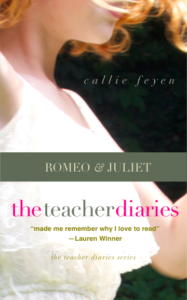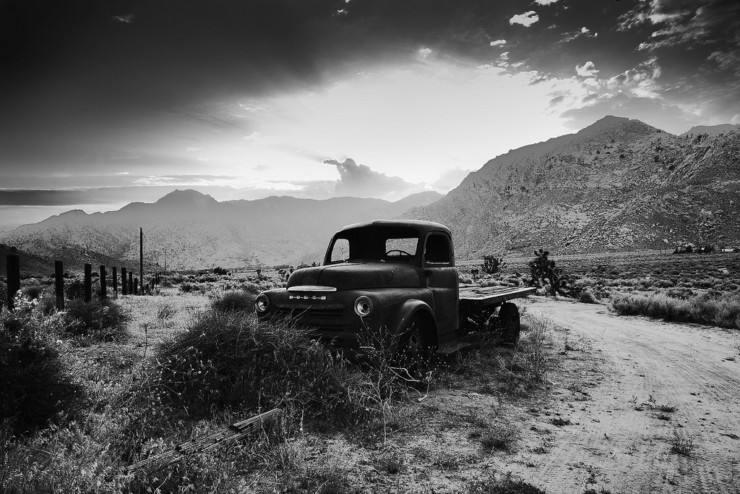This month, our topic at Tweetspeak is farming. I grew up less than a mile from Chicago’s city limits; the “el” was my nighttime lullaby. I hear or read word the word farm, and I immediately think nature, and well, I am just not that girl. I respect nature. I understand we need it, but I’m not trying to be out in it learning lessons and cultivating stuff. Honey, I don’t care are how cute those Wellington boots are at Target — they don’t fit me.
Needless to say, when I sat down to plan the writing prompts this month, I didn’t think I had much to say about farming, especially not farming and poetry. If creative nonfiction is the Chicago Skyline, then poetry is, well, I’m sorry, but it’s farming.
Or here’s another analogy. I love clothes — the more the merrier. Creative nonfiction is a colorful, huge closet of dresses and skirts, pants and tops I can mix and match. Poetry is the minimalist trend that’s all the rage right now. Don’t get me wrong, you minimalists are stunning in your greys and roses and whites and simple golden rings on you index fingers. You are poetry in motion, as they say, but I just cannot. Give me my orange heels that are a half-size too big. Give me some black dress pants, and let me wear it with my T-shirt that has a goat jumping over a fence saying, “I’m so over it.”
What I’m trying to express is this: poetry is hard. Farming is hard. You have to make very careful choices because decisions count. Ain’t nobody got time for a talking goat jumping over a fence.
So, I hit the books. Specifically, Tania Runyan’s How To Write A Poem, and randomly opened it up to p. 16 where I read, “Now it’s time to find the poems inside.” This was an invitation.
Try It
Runyan suggests freewriting to find a poem and gives several topics to explore. I changed the exercise slightly and freewrote everything that came to mind when I thought of farming. Runyan suggests setting a timer and writing without stopping until that time is up. (I love her tip to actually write “I don’t know what to write,” if we get stuck.)
Here’s what I came up with (I typed exactly what I wrote on paper to practice what Runyan instructs. Don’t worry about editing/revising at this point — just write):
My dad and I grew raspberries and once a sunflower in a patch of dirt in our backyard. The raspberries were delicious, warm and plump from the sun, but they didn’t stay with us. Something about them was wild and they kept moving down the street. The sunflower grew so tall my dad got a ladder for me to stand on and he took a picture of us — the flower and me. I’m wearing a green polo shirt and holding my Cabbage Patch doll, and the flower is learning toward me like a friend. Shortly after that, a squirrel bit its stem to eat its seeds.
After freewriting, Runyan says to take a break (another tip I love), then read what we wrote “without making changes.” She asks, “What surprises you? Entertains you? Makes you catch your breath?” We are to highlight those parts, then rewrite those lines, creating what will most likely be “a skeleton of ideas.”
Here’s my skeleton:
Something Wild
My dad and I grew raspberries, and once, a sunflower
in a patch of dirt in out backyard.
The raspberries were
warm and plump
from the sun.
They didn’t stay with us.
Something about them
was wild.
My dad got a ladder for me to stand on —
he took a picture of us,
the sunflower and me.
I’m wearing a green polo shirt,
holding my Cabbage Patch Doll.
The flower is leaning towards me,
like a friend.
I think I can scale this down more, and as Runyan suggests, I’d like to fill in some gaps. However, I’m pleased with the seeds I’ve planted. Over the next few weeks, I’ll tend to this, perhaps, like a farmer tends to his soil. Maybe I can even find room for a talking goat.
Featured Poem
Thanks to everyone who participated in our recent poetry prompt. Here’s one from Shannon Mayhew we enjoyed:
Nixie
My girl is a sea sprite.
I’m standing in the surf–
frothy waves shimmer like liquid quartz and jade,
churning circles around my shins.
And she is joy itself, in the form of a child.
She laughs into the breaking waves,
falling into them and allowing them to receive her,
and they push back, holding her up
and offering their own sudsy celebration.
She looks back at me after each leap,
eager to share her bliss as it pours
from its secret infinite source.
Now she splashes towards me
and gifts me with a kiss,
squishy and cold on my salty lips,
before she plunges back into her element.
My feet sink into the silky sea floor
and I am held in the most vibrant of places,
called now, called Home.
—Shannon Mayhew
Photo by Pacheco, Creative Commons, via Flickr. Post by Callie Feyen, author of The Teacher Diaries: Romeo and Juliet.

- Poetry Prompt: Courage to Follow - July 24, 2023
- Poetry Prompt: Being a Pilgrim and a Martha Stewart Homemaker - July 10, 2023
- Poetry Prompt: Monarch Butterfly’s Wildflower - June 19, 2023

Maureen says
This is one I wrote way back in 2012:
Terroir
Neruda scales desire at dawn,
2,600 miles above the sea,
terroir-hunting. Across the spans
of the Andes’ alluvial stones
he sweeps a hand like wind itself
— his vintage breath the rise
and fall on a lover’s neck — cool
morning perfecting the climate
to praise the land’s own poetry.
In the fertile soils of Alto Maipo,
he plants his stock of Cabernet vines,
their roots, ungrafted, pushing
deep. These mountains, dry-farmed,
urge natural spirits to impart
to grapes inky as night the hints
of rosemary and time. Neruda’s
an elegant pour, scented with balsamic
notes, the fruity ripe red coloring
his crystal glasses the way, later,
his plump lips stain thirsting mouth.
Earth’s minerals make the poet’s life
long, his wine the honey of Santiago nights.
Callie Feyen says
I can see the land and (almost) drink the wine in this poem. Lovely!
I love these lines: “praise the land’s own poetry,” and “Earth’s minerals make the poet’s life long,”. I often get into tricky and terrible thinking patterns where I come to believe I don’t have enough of (fill in the blank) to be a writer, but stepping outside and taking a look around changes my mind every time. Thank you for this reminder, Maureen, and for this beautiful poem.
Katie says
Picking berries
Stained fingers
Pulling corn ears
Sore shoulders
Shucking and silking
Tired hands
Plucking tomatoes green
Setting them on a sill
Watching them redden
Slicing for sandwiches
Waiting for watermelons to ripen
Drippy elbows
Spitting seeds
Shelling peas
Snapping beans
Tender finger tips
Canning
Fearing the pressure cooker
These are some summer memories growing up in a gardening family (not quite farming)
Callie Feyen says
I love all the action you describe here! Shelling, snapping, plucking, shucking, picking. It makes me hungry and it makes me want to find all my meals in the garden today! (If only I had one….better get on that.) 🙂
Rick Maxson says
Thistle and roses
where the old road rounds,
barb wire, foot and swing—
Copperheads and blackberries,
fat in the sun, my wrists speckled
from picking, blood and wine—
Going home, I stopped,
entered a magnolia,
felt it breathe, ribs and heartbeat—
Years pass, I grow into them,
this sweetness ripens, unbearable
arc of joy, the leaves, the flow within
Callie Feyen says
I want to go where this old road rounds, and feel a magnolia breathe after reading this poem.
Thank you, Rick!
Trish says
Morning mist curls around stalks dew dampened and hungry,
yearning to be pulled,
they stretch thin fronds toward a promise of sun
youthful green gives way to streaked yellow maturity.
I fall to my knees in prostration,
sinking into soft dark earth,
a prayer pose of harvest.
Constant creeping forward motion,
head bowed and hands grasping,
Time is measured by shrinking shadows,
and empty spaces left in my wake.
Callie Feyen says
This “prayer pose of harvest” is a lot what I think prayer feels like, and “Time is measured by shrinking shadows” is going to stay with me for a long time. Thank you, Trish.
Katie says
Least Favorite Chore
“Hhhh. . .do I have to?”
“Yes, it won’t kill you.”
Taking paring knife, colander
I slip on my flip flops
Head out to middle row
of weedy garden
Step over yellow squashes
reach icky vegetable
Brace myself for sticky prickles
set down colander
Reach into okra plant
cut the itchy harvest
Walking back to mom
I kick off my flip flops
Say: “I survived again,
but I’m still not eating them.”
Callie Feyen says
Ha! Oh, this is great. How old are you in this poem? I think you’ve captured the tween voice perfectly.
Katie says
Well, actually that is what I wish I’d had the nerve to tell my mother! I think I might have been about 11 or 12 at the time.
My parents required us to address them as ma’am or sir. I really didn’t have the nerve then to be snippy with my mom. I just remember hating how scratchy the plant was and how I disliked the itchiness it caused and also detesting the taste of okra. Just the smell of it frying was enough to send me running outside.
Shannon Mayhew says
I really love this, Katie! Sounds like a picture book, or almost like a Shel SIlverstein poem, to me. I especially love “sticky prickles” and “itchy harvest”! Your farm offerings are both deliciously sensorial! 🙂
Katie says
Thank you, Shannon:)
Shannon Mayhew says
Callie, I do love me some rustling cornstalks, plunking seeds in a pie-pan, cacophonies of crickets, and yes, poetry and index finger rings (though mine is silver — gold is too flashy for me!) 🙂 I had so much fun reading this prompt! And writing a farm skeleton of my own. I do think I will need to come back to this one and water it with some editing and maybe a little more magic. But I like the early crop. Maybe you will recognize this row of sunflowers?
Sunflowers
Remember when the kids put on those shiny little boots
(their moms excitedly bought them at Target,
or maybe that shoe store with the trains,
where they sell matching raincoats)?
How long it took,
helping to wiggle thirteen sets of small feet
into those rigid rubber rainboots
They needed our help with so many things
We tromped out to the playground
Each plump hand squeezing tightly several seeds
like gold pieces, or wishes
And they poked the striped seeds into the soil
with a blessing
A ritual to mark the last day of school
Just one summer has passed
And now sunflowers line the playground fence
Tall enough that the kids can stand under them
for a bit of shade
Bigger boots on their feet
making bigger footprints in the muddy mulch
And those bigger boots,
the kids put them on by themselves
They play and my heart smiles–
I see they have learned
to take turns
and say “yes!” and “play with us!”
The sunflowers look like big yellow faces
wearing floppy hats
and they are nodding their heads in approval
Blooms so large, heavy with seeds
we will soon harvest
And I’m standing in a moment
called morning recess,
amidst a chorus
of buzzing bees and play-song
wondering
what is this magic
that makes them grow so fast?